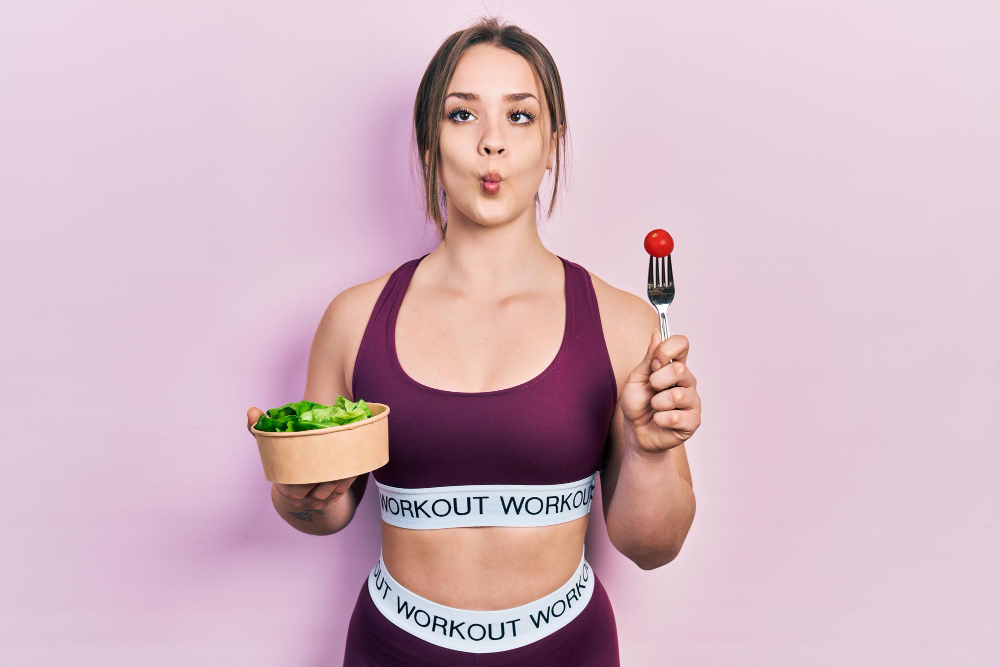Gaining healthy weight isn’t about stuffing yourself with junk food. It’s about choosing calorie-dense, nutrient-rich foods that help build muscle, boost energy, and support your body from the inside out.
Whether you’re naturally lean, recovering from illness, or looking to bulk up with strength training—this guide will walk you through the best high-calorie foods, how to eat them smartly, and what you should avoid to gain weight in a healthy way.
Understanding Weight Gain the Healthy Way
Let’s start with the basics. Weight gain happens when you eat more calories than you burn. But not all calories are created equal. You can eat 1,000 calories of soda and chips, or 1,000 calories of rice, nuts, and healthy fats—and the effect on your body will be very different.
The goal is not just to gain weight, but to gain lean mass, strengthen your body, and avoid bloating, fat buildup, or sugar crashes. That’s why this guide focuses on clean, high-calorie foods that offer more than just energy—they fuel your body with protein, fiber, and healthy fats.
Why Some People Struggle to Gain Weight
If you’ve tried eating more but your weight doesn’t budge, there could be a few reasons. Some people naturally have a fast metabolism. Others have smaller appetites or forget to eat enough in a day. Stress, anxiety, or certain health conditions like thyroid imbalances can also affect your weight gain journey.
It’s important to rule out medical issues if you’re eating well and still not gaining weight. But if you’re generally healthy, the right food strategy can help you steadily gain weight without force-feeding or overeating junk.
How Many Calories Do You Need to Gain Weight?
For most people looking to gain weight, eating 300 to 500 calories more than your daily needs will help you gain slowly and steadily. For faster results, you can increase your intake by 700 to 1,000 extra calories a day.
This doesn’t mean doubling your meals or overeating in one sitting. Instead, it’s about increasing your calorie density throughout the day. Adding calorie-rich ingredients like ghee, nut butters, cheese, seeds, and whole milk to your regular meals makes a big difference without forcing more volume.
Best High Calorie Foods to Add to Your Diet
Let’s now talk about the food itself—the real heroes of healthy weight gain.
One of the most powerful groups of high-calorie foods includes nuts and seeds. Almonds, walnuts, cashews, peanuts, sunflower seeds, and flaxseeds are loaded with calories, healthy fats, and protein. Even a small handful can provide 200–300 calories. You can eat them raw, roasted, or as nut butter spreads on toast, bananas, or smoothies.
- Whole milk and full-fat dairy products are another reliable source. Milk, yogurt, paneer (Indian cottage cheese), and cheese not only add calories but also offer calcium and protein for muscle building. Drinking a glass of milk before bed with a spoon of peanut butter is a common weight-gain trick.
- Grains like rice, oats, quinoa, and whole wheat products also help. These are carbohydrate-rich and help store glycogen in the muscles, which adds volume. Pairing them with protein and fat sources like eggs, chicken, legumes, or ghee turns them into complete meals.
- Fruits can help too, especially those with natural sugar and density. Bananas, mangoes, avocados, dates, and coconut are all great options. Smoothies made from these fruits with added nut butter or yogurt become perfect high-calorie snacks or breakfast choices.
- Root vegetables and starchy foods like potatoes, sweet potatoes, and yams give a dense source of carbs. They help fill your plate without making you feel overly stuffed and provide slow energy release throughout the day.
- Healthy oils and fats—like olive oil, ghee, avocado oil, or coconut oil—can be drizzled on salads, cooked with meals, or blended into dishes to boost calories without increasing volume too much.
- And finally, protein-rich foods like eggs, chicken, fatty fish (like salmon), red meat, legumes, and tofu support healthy weight gain by promoting muscle repair and growth.
Sample Meal Plan for Healthy Weight Gain
Building a sample day helps you visualize how to include all these high-calorie foods without overwhelming your system.
- Start your morning with a high-protein smoothie made of whole milk, bananas, oats, peanut butter, and a dash of honey. This alone can give you 500–700 calories. Pair it with a boiled egg or some toast with ghee for added energy.
- For lunch, go for rice or chapati with dal, vegetables cooked in ghee, and a side of curd or paneer. Add a salad with olive oil dressing and a fruit like mango or banana. Don’t forget a spoon of peanut butter or a few dates as an easy dessert.
- Evening snacks should be simple but calorie-rich. A handful of trail mix (nuts, seeds, dried fruits), a peanut butter sandwich, or a smoothie with dates and milk works great. Some full-fat yogurt with granola and honey is another good option.
- Dinner can be similar to lunch—protein, carbs, and healthy fat combo. Go for chicken or tofu stir-fry with rice or roti, or dal with khichdi and ghee. If you’re still a little hungry later, a glass of milk with a handful of almonds can wrap up the day.
Smart Tips to Increase Calorie Intake Without Feeling Stuffed
- Gaining weight shouldn’t feel like a chore. The trick is to sneak in calories in a smart way. Use full-fat versions of foods instead of skim or low-fat. Add cheese to parathas, use cream in soups, and cook vegetables in oil instead of steaming them.
- Eat more frequently—every 2 to 3 hours. You don’t need to eat large meals. Just space out smaller meals with healthy, dense snacks in between. This keeps your digestive system working without overload.
- Liquid calories also help. Milk, fruit smoothies, shakes, and fresh juices add up quickly and are easier to consume than solid food. Add oats, nuts, and protein powders to your drinks to double the impact.
- Cooking techniques matter too. For instance, roasting nuts increases flavor and calorie density. Frying foods in healthy oils or baking with added ghee can increase the energy value of regular dishes without feeling like you’re eating more.
Try not to drink water just before or during meals, as it can reduce your appetite. Sip water between meals instead.







Leave a Reply